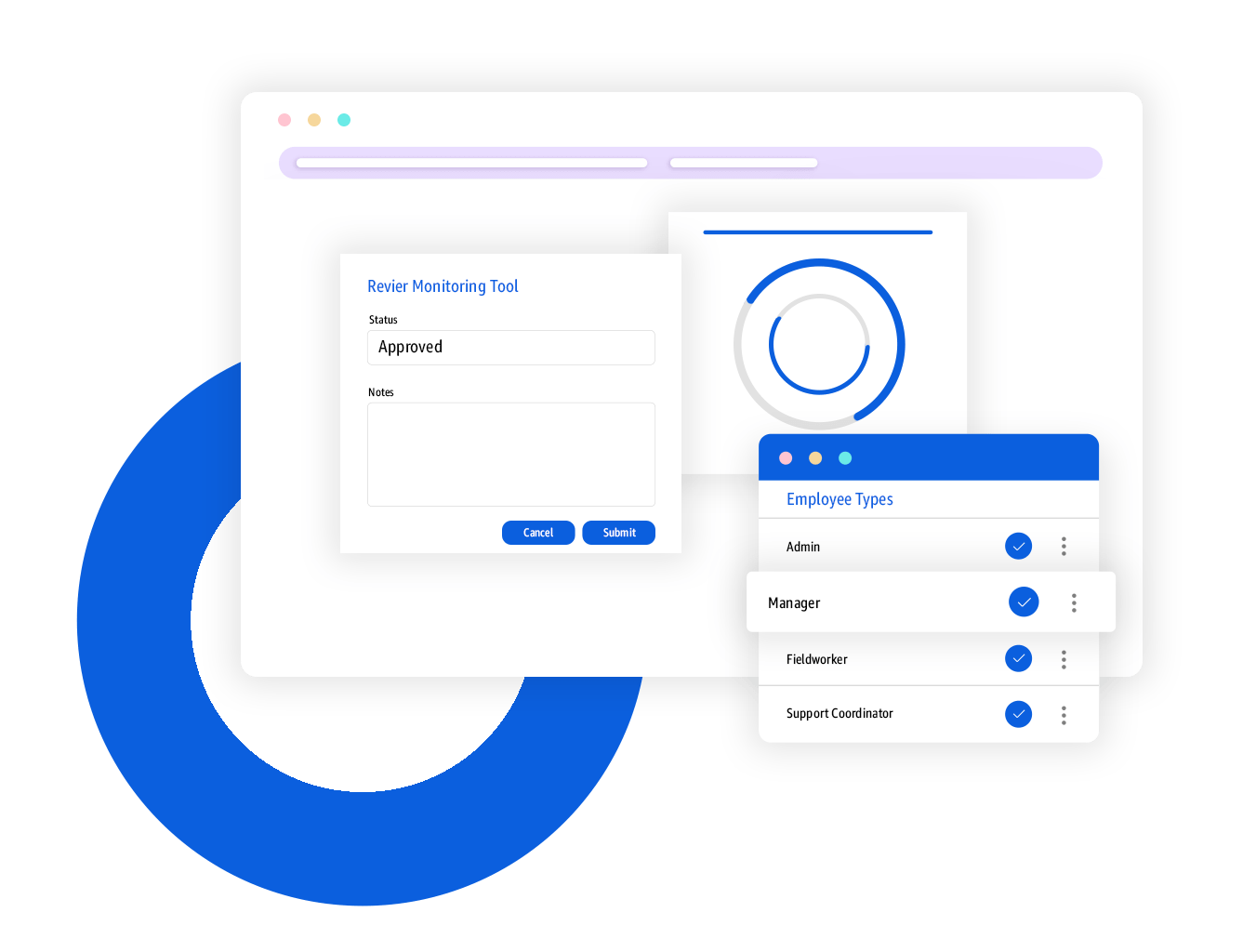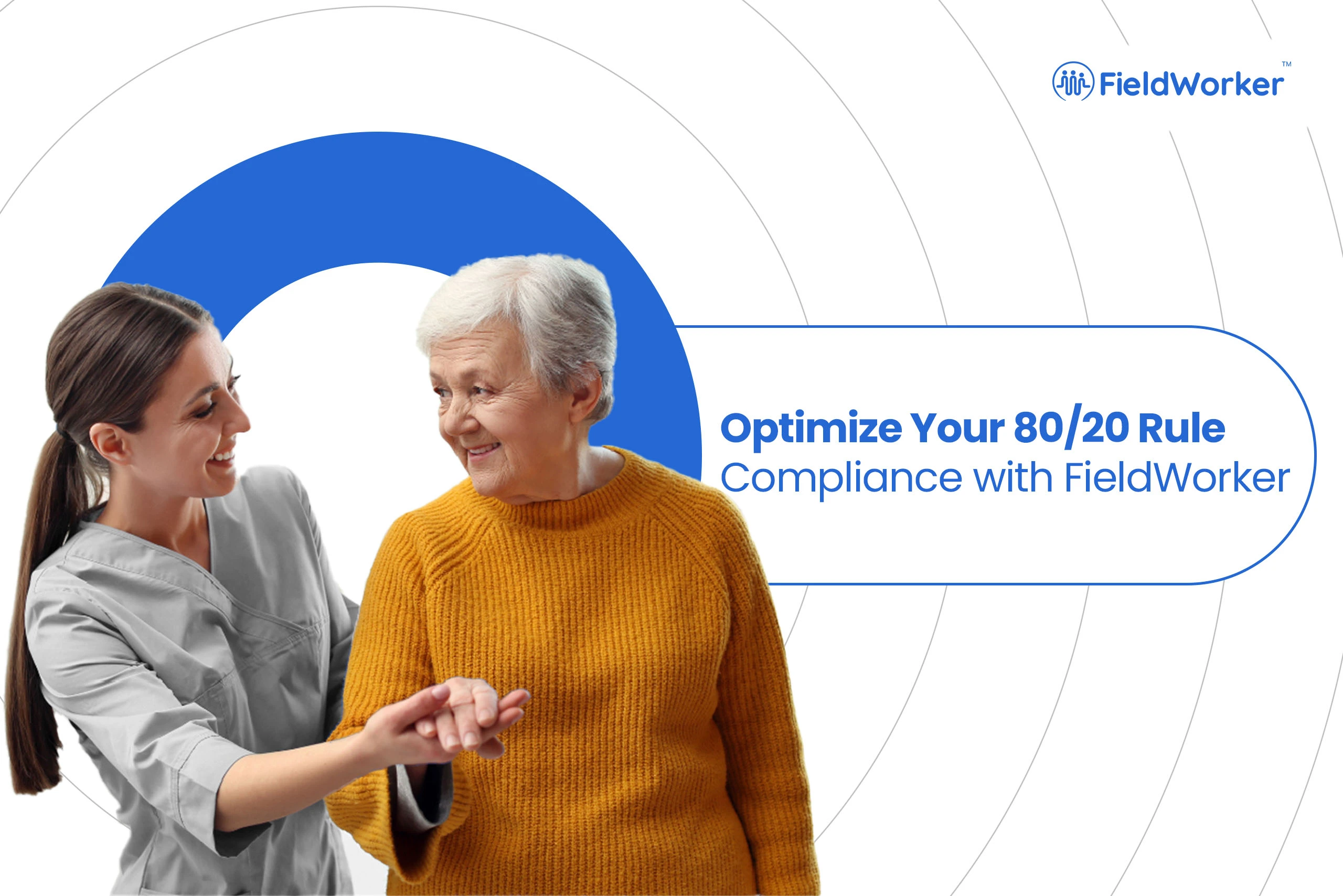In a significant move to stabilize the Home and Community-Based Services (HCBS) workforce, the Centers for Medicare & Medicaid Services (CMS) has finalized the 80/20 Rule. This rule, while ensuring fair wages for care workers, poses numerous challenges for providers regarding compliance and administrative burden.
Given these challenges, what will be the impact on HCBS providers and agencies? What might be the long-term effects on the social care workforce? How could these new requirements influence service delivery and care availability? To begin, let’s briefly understand the 80/20 Rule.
What is the 80/20 Rule?
To stabilize the HCBS workforce, the CMS 80/20 Rule mandates Home and Community-Based Services(HCBS) to spend 80% of their Medicaid payments on direct care worker compensation. These compensations include salaries, wages, benefits, and employer payroll taxes. As per the updated guidelines, providers have six years from the rule’s effective date to demonstrate compliance and must comply with the data tracking mandate within four years.
Given the rigid response to the regulation, CMS decided to enable state flexibility- although the 80% compensation rule remains the same. The rule permits states to establish different standards for smaller HCBS providers and creates objective-based hardship exemptions to accommodate various sizes of providers and demonstrate regulatory flexibility. This could mean a leeway from the compensation clause based on the criteria of exemption reviewed and considered by State-Medicaid Agencies. This way small agencies can stay in compliance with the 80/20 rule while sustaining their operations.
What is the impact of this rule?
Stakeholders have raised concerns about the administrative burden and inflexibility of fund allocation requirements, noting that the rule may not address the core issue of inadequate reimbursement rates for HCBS providers. While some concerns from HCBS providers and agencies were acknowledged, the core of the rule—specifically the 80% compensation to direct care workers—remains largely unchanged, with only minor implementation flexibilities. This decision underscores the significant impact on stakeholders, who must navigate these challenges within the current framework.
Compliance with the 80/20 Rule brings significant administrative and financial challenges for HCBS Providers. This means reallocation of budgets, implementing robust tracking systems, and ensuring accurate reporting—all while continuing to deliver quality care.
State Medicaid Agencies must now exercise increased vigilance and precision in their administrative responsibilities, as they are required to collect and track data on direct care workers to effectively navigate these new duties.
Conversely, the 80/20 rule appears to be a promising initiative for enhancing job satisfaction and retention among direct care workers by ensuring fairer compensation for their efforts. This is vital for reducing turnover rates and maintaining a stable care workforce.
While higher compensation for care workers is anticipated to improve the quality of care. Medicaid beneficiaries raise concerns that some providers might reduce services or exit the Medicaid space if compliance proves challenging, potentially affecting care availability.

How Can FieldWorker Help?
FieldWorker is designed to address the compliance complexities and budgeting challenges posed by the 80/20 Rule, offering a comprehensive suite of features to streamline compliance, improve budget allocation and enhance operational efficiency. Here’s how FieldWorker can help:
- Streamlined Documentation and Reporting: Centralizing and simplifying your documentation process ensures accurate tracking and compliance with the 80/20 Rule. With FieldWorker, automate your workflows to reduce manual data entry, minimize errors and save time.
- Customizable Workflows: With FieldWorker, capture all the necessary data points and report accurately with customized processes that align with the 80/20 Rule.
- Efficient Billing Processes: Automated billing processes help maintain accurate and timely Medicaid payments which reduce administrative overheads and free up resources to focus on direct care.
- Audit Readiness: Reduce the risk of compliance penalties and be proactive in maintaining up-to-date documentation to be audit-ready.
- Real-Time Data Access: Effectively meet compliance requirements with cloud-based access that helps instantly access up-to-date client data, facilitating efficient reporting and decision-making..
Strategies for Staying Afloat
To effectively navigate the dynamic care environment with effect of the 80/20 rule, providers can implement several strategic measures to stay afloat. Some of which include:
- Optimize Budget Allocation: HCBS Providers must identify and reduce unnecessary administrative expenses to comply with new CMS regulation. Thorough reviews of budgets will help ensure that 80% of Medicaid payments are allocated to direct care worker compensation.
- Leverage State Flexibilities: Take advantage of state-specific standards and hardship exemptions where applicable. Smaller providers, in particular, should explore these options to ease the compliance burden.
Collaborate with Stakeholders: Engage with state Medicaid agencies, industry associations, and other stakeholders to share best practices and advocate for supportive policies. Collaboration can lead to more effective implementation and compliance strategies.
Conclusion
The CMS 80/20 Rule represents a significant shift in the HCBS landscape, aiming to improve compensation for direct care workers and enhance the quality of care for Medicaid beneficiaries. While the rule presents challenges, effective solutions and strategies can help providers navigate these new requirements.
FieldWorker stands ready to support HCBS providers in complying with the 80/20 Rule, optimizing operations, and ensuring quality care delivery. By leveraging AI-driven advanced technologies and innovative solutions, FieldWorker offers HCBS providers with a complete set of care management tools that not only comply with but thrive in this new regulatory environment.
To learn more about how FieldWorker can support your agency in complying with the CMS 80/20 Rule, schedule a demo today. Let’s work together to ensure a sustainable and high-quality future for HCBS services.

